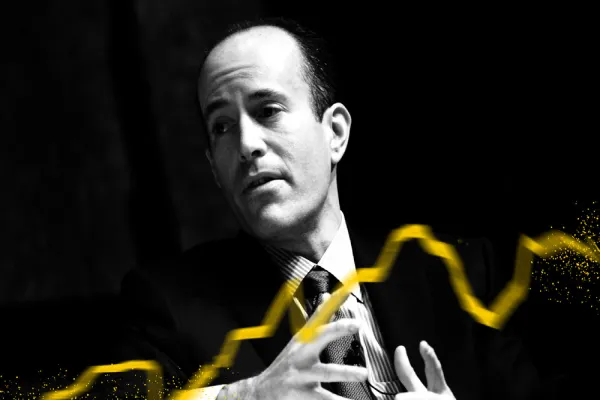As the “everything bubble” begins to deflate, Dan Zwirn said he’s seeing the best potential investments since the founding of Arena Investors in 2015. Still, the CEO and CIO of Arena says that so far, only the most speculative investments, such as growth equity and venture capital, have been marked down. That’s because these companies need big infusions of cash, which require accurate disclosures — and independent accountants.
But the limitations of valuation and the lack of transparency in private markets are masking and delaying many other markdowns in leveraged finance and private equity, structured finance, and mortgages and commercial real estate — and potential opportunities. Many managers, who determine the value of assets only on a quarterly basis and in a process that isn’t standardized, are stalling on write-downs. They’re hoping the economy will recover before they have to mark investments “to reality,” as Zwirn described it to Institutional Investor.
Even more significant, he said, firms are also playing games and taking advantage of the their ability to play around when it comes to businesses that are generating positive cash flow.
Zwirn described a simple example of a business worth $10 that has 50 cents of cash flow. “If I lent you $8…your actual equity value is negative. But if I don’t want to talk about it, I can say, ‘give me fifty cents of cash flow and my coupon, and I’ll extend and maybe you’ll give me some warrants and hope the business comes back,’” he explained.
“There’s a lot of discretion effectively available when you have positive cash flow to create a ‘solvency theater.’ And that creates a pretend notion that this might be okay. I’m doing the right thing because I’m supporting the sponsor, as opposed to crystallizing reality.”
But the role of equity in the cap structure is to bear most of both the macroeconomic and idiosyncratic risk. “That’s why it makes the big bucks, so when it’s out of the money, its value, even if still positive, should accrue to the benefit of its creditor,” he said.
Arena estimates that if private sponsor loans were on par with those traded on Wall Street desks in the fourth quarter, the average direct-lending fund would be down 30 percent to 40 percent. “And the entirety of CLO equity would be wiped out 1.5 to 2 times over.”
Still, Arena is seeing potential investments in new issuance and other areas of the market where only a few years ago it was priced out.
“As the reality of the current environment is recognized (i.e., market participants are forced to recognize investments that are actually impaired), we expect to see more compelling opportunities than we have since Arena started in 2015,” Zwirn wrote in his letter.
But Zwirn is no optimist about the current state of affairs. When asked in the interview how long it will take the markets to reset and work through the bubble created by monetary policy tools like quantitative easing as well as enormous global fiscal spending, Zwirn said, “It could easily be a 10 to 15 year period of just grinding through this.”







